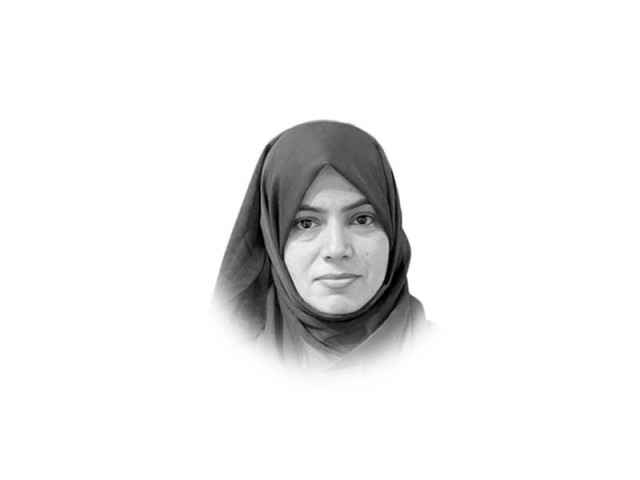She shapes democracy
In democratic society, active participation of all members is paramount

In a democratic society, the active participation of all members is paramount. The inclusion of women in the decision-making bodies of political parties is not just a matter of gender equality, it is a fundamental necessity for a robust democratic process. In the face of the political setup, the considerable percentage of women in the population, their visibility and influence within political parties remain disproportionately low. Therefore, it is more required to create an environment that encourages and facilitates the active involvement of women in political processes.
Our country, with its diverse and dynamic population, stands at a crucial juncture in recognising and harnessing the potential of its female citizens. Constituting around 49.6% of the total population, women play an indispensable role in shaping the democratic fabric of the nation. As of 2021, the population of Pakistan is projected at 225.20 million, up by 1.95% compared with 220.89 million in 2020. Pakistan is ranked 5th in terms of population and 49th in terms of the population growth rate. It is ranked at 93 among 153 countries in women’s political empowerment, where 20.2% of women are legislators and 12% of them are appointed to ministerial positions, according to the Global Gender Gap Report 2020. However, their underrepresentation in political decision-making processes poses a challenge to the full realisation of democratic ideals.
Research indicates that increased female representation in parliament correlates with heightened focus on women’s concerns. Women’s active involvement in politics is a crucial element for both gender equality and authentic democracy. Gender-sensitive governance reforms are necessary to enhance elected officials’ effectiveness in promoting and implementing gender equality in public policy.
Legislation aimed at safeguarding women’s rights plays a pivotal role in creating a conducive environment. The Women’s Protection Act of 2006 removed rape from the jurisdiction of Islamic law, placing it under the country’s criminal code. Such legal measures are essential not only for articulating the commitment to gender equality but also for sending a powerful message that there are enforceable laws against any form of exploitation.
Empowering women goes beyond legal frameworks; it necessitates a comprehensive approach addressing various societal factors that thwart their growth. Unfortunately, Pakistan faces numerous challenges, including extremism, political violence, sexism, misogyny, limited opportunities and inadequate education and training avenues. These factors contribute to the lackluster growth in portraying the soft image of women in the country.
Extremism and political violence not only pose threats to the security of women but also limit their ability to participate freely in public life. The prevailing sexism and misogyny further reinforce traditional gender roles, restricting women to predefined spheres. Overcoming these attitudes requires great effort, including awareness, educational initiatives and legislative reforms that challenge discriminatory practices.
The dearth of opportunities for women is another hurdle. Limited access to employment, entrepreneurship, and leadership roles hampers the socio-economic progress of women. This requires policies that promote equal opportunities for women in leadership positions.
Education plays a vital role in empowering women. However, limited educational and training avenues for women thwart their personal and professional development. Quality education for women is not only a moral need but also an economic necessity.
It is crucial to empower women to achieve equal social standing in society. Unlocking the complete potential of women in Pakistan demands a unified approach to tackle their varied challenges. Beyond legislation, social and economic initiatives are crucial to break barriers for women’s advancement. This pursuit is not solely about justice and equality but a strategic necessity for sustainable national development and prosperity. Embracing the diverse talents and perspectives of its women will undoubtedly contribute to a more vibrant and ideal democracy in the country.
Published in The Express Tribune, January 20th, 2024.
Like Opinion & Editorial on Facebook, follow @ETOpEd on Twitter to receive all updates on all our daily pieces.














COMMENTS
Comments are moderated and generally will be posted if they are on-topic and not abusive.
For more information, please see our Comments FAQ